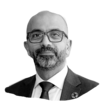International Day of Zero Waste: turning waste into opportunities

https://arab.news/zpyrc
For the third consecutive year, the world is observing International Day of Zero Waste, marked annually on March 30.
This year’s day, themed “Towards Zero Waste in Fashion and Textiles,” emphasizes the importance of reducing the impact of the clothing sector’s waste, and promotes sustainability and circularity.
Textile waste: a growing crisis
The textile industry is taking a heavy toll on the planet. It is responsible for 2 to 8 percent of global planet-warming greenhouse gas emissions and 9 percent of annual microplastic pollution ending up in oceans. The industry also consumes 215 trillion liters of water per year and uses about 3,500 chemicals in production, many of which are toxic for both humans and the environment, including soil, water, animal health, and plant life.
The linear business model of fashion and textile sector is fueling overproduction and overconsumption. Driven by an effective marketing machine that is being replicated by other sectors, coupled with lower prices, and the efficiency of online shopping, this trend is contributing to the global waste and pollution crises.
Each year, 92 million tons of textile waste are generated worldwide with an estimate that every second, the equivalent of a garbage truck full of clothing is disposed of around the world. Only 8 percent of textiles fibers in 2023 were made from recycled sources, with less than 1 percent of the total fiber market coming from textile-to-textile recycling and around 13 percent of clothing being recycled to mostly lower-value uses such as insulation and cleaning cloths. This lack of fiber recycling practices is estimated to equate to an annual material value loss of more than $100 billion.
Circularity is key
Through its Textile Initiative, the UN Environment Programme is focused on accelerating the transition toward a sustainable and circular textile value chain. The program has set out a roadmap for stakeholders to transform the sector using the life cycle approach, with the aim to generate business revenue from circular business models such as reuse, repair, and circular products, instead of selling products produced from virgin fibers.
UN Environment Programme looks to reduce impact of textile waste, and promote sustainability.
Sami Dimassi
Moreover, consumer awareness and behavioral change is essential to turn the tide on overconsumption and overproduction, along with transparency in information sharing as to what goes into each product, covering both environmental and social issues. To that end, UNEP has also developed a Sustainable Fashion Communication Playbook whereby it calls for a commitment to all communication to be evidence-based and data-driven.
In West Asia, UNEP established the West Asia Sustainable Fashion Academy in 2021, as an influential regional platform within the fashion industry to drive sustainability and circularity across the textile value chain in the region. WASFA has engaged with different stakeholders through capacity-building initiatives, behavioral change campaigns, as well as research.
Composting: a sustainable solution for organic waste
Zero waste is not limited to textile waste. In West Asia, over 50 percent of the municipal solid waste destined for land disposal is made of organic waste, 85 percent of which is food waste. Uncontrolled decomposition emits methane, a greenhouse gas, and waste is estimated to account for 20 percent of global methane emissions.
This is where composting offers a solution. It consists of transitioning organic waste away from landfill disposal, and turning it into economic opportunities, transforming it through a natural recycling process into organic fertilizers improving soil quality and returning nutrients back to the soil.
Guide on composting promotes recycling of organic waste through locally tailored techniques.
Sami Dimassi
The UNEP Regional Office for West Asia has developed a guide on “Composting Solid Organic Waste from Municipal Sources in West Asia” to promote the recycling of organic waste through locally tailored composting techniques, from planning, design, and operation of composting facilities.
Way forward
Managing waste requires a multi-stakeholder approach. Governments have a duty to enact stricter regulations to prevent waste generation and limit its production, while investing in sustainable infrastructure.
Businesses must adopt circular economy principles, reducing waste through recycling and repurposing.
Individuals must shift their mindset and embrace zero-waste by taking conscious and sustainable choices in their daily lives.
Our aim for the future is not to commemorate the International Day for Zero Waste by covering problems, but we hope to highlight achievements that will “build a fairer, and more sustainable planet.”
- Sami Dimassi is UNEP representative and regional director for West Asia.
























